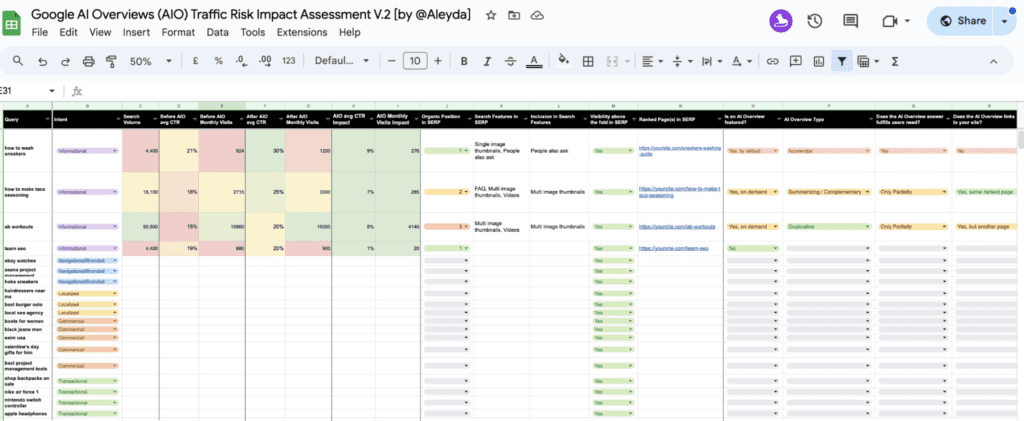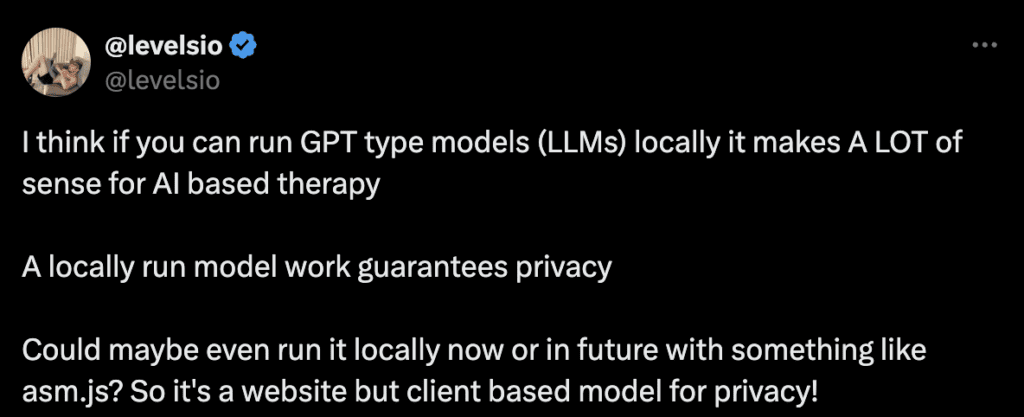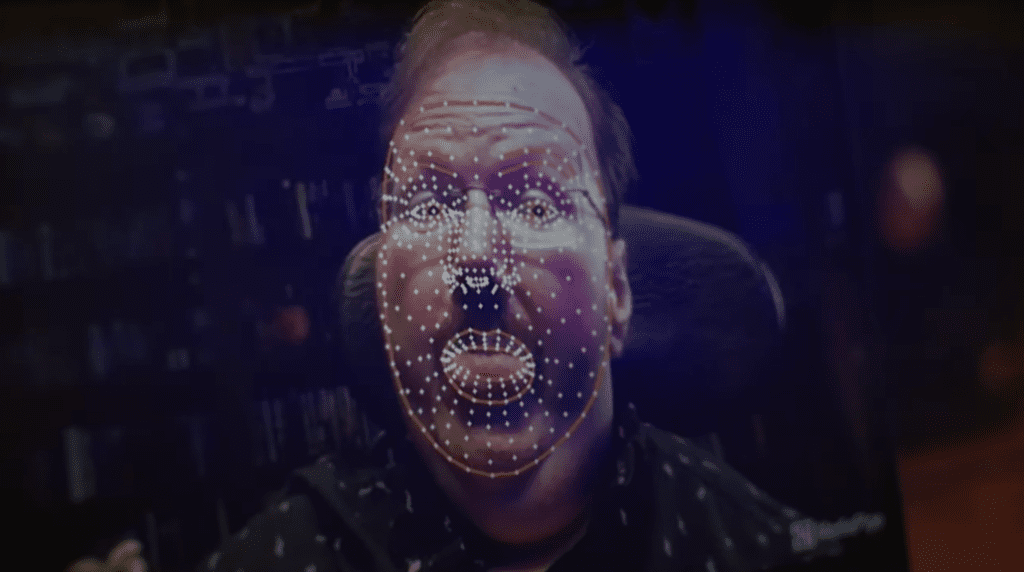Welcome to the first MetaTrends Report, your guide to navigating the 5 forces shaping our world.
In each issue, we look at the most important events through the lens of the Five Forces Framework which was built based on recurring themes discovered through putting 5,000+ hours of research into over 100+ Trends Reports.
Whether you’re a founder, investor or just curious about the future, the Five Forces Framework will help you to navigate the 5 forces shaping our world.
The Five Forces:
- 🦾 Individual Leverage: The increasing power of individuals to impact the world. See our reports on AI Agents, No-Code and Million-Dollar, One-Person Businesses.
- 🔓 Permissionless Innovation: The erosion of barriers to entry, allowing anyone to build and share ideas. See our reports on Paid Podcasts, The Creator Economy and Self-Publishing.
- 🔻 Specialization: The growing importance of niche expertise and targeted solutions. See our reports on Micro-SaaS, Micro-Marketplaces and Audience-First Products.
- 🏛️ Centralization: The consolidation of power and control by platforms and institutions. See our reports on Programmatic SEO, YouTube Channels and Faceless Social Media Accounts.
- 🌐 Decentralization: The shift towards distributed systems and technologies that empower individuals. See our reports on Open-Source AI, DAOs and Decentralized Finance.
MetaTrends Reports will help you:
- Stop Reacting, Start Shaping: Become an active player in shaping the future, rather than a passive observer of events.
- Gain Clarity in a World of Chaos: The Five Forces Framework gives you a sense of order in an otherwise overwhelming world.
- Turn Disruption into Advantage: See challenges as opportunities and build new solutions that others haven’t imagined.
Now let’s see the forces in action…
In this free issue, we dive into the most important (and overlooked) events from last week and use the MetaTrends framework to find opportunities and prepare for risks.
Researchers Discover AI SEO Techniques
Image Source: Aleyda Solis
“AI Optimization (AIO) is the new Search Engine Optimization (SEO)”
The Facts:
- Researchers tested 9 methods to optimize websites for AI search engines.
- Three strategies — Citing Sources, Adding Quotes and Statistics — led to a 30%-40% boost in visibility.
Opportunities:
- Build Tools to Optimize Rankings in AI Models: Put simply, this looks like Ahrefs or Moz for ChatGPT, Gemini and Claude.
- Provide AIO Consulting Services: SEO experts have built great livelihoods. We might see the growth of a new specialized skill set focused on optimizing for visibility in AI models. Here’s an early glimpse. This is still an open space where you can position yourself as an authority on AI search optimization by running experiments, sharing research and educating others.
Haters:
“In traditional search engines, such as Google, sites had many chances to rank. The game of figuring out how to rank in ChatGPT, Gemini and Claude seem like winner-take-all or winner-take-most.”
It certainly seems that way. This seems to lead to a world where the stakes are higher. Those who can afford to invest resources to rank will do so, which will make it harder for new entrants to gain traction.
MetaTrend Analysis:
AI search engine optimization (AIO) is a new domain and an example of 🔻 Specialization. A lot of SEO best practices transfer to AIO, yet there are new things to consider. Traditional SEO is also an example of 🏛️ Centralization with (mostly) Google setting the rules.
Local LLMs: New Use Cases
The Facts:
- Pieter Levels built an AI Therapist using ChatGPT before moving it to a Telegram bot.
- He saw the privacy limits of centralized models, so he’s aiming to build a client-side version of the AI Therapist that users can run locally.
Opportunities:
The move to local LLMs (Language Learning Models) in applications, such as an AI Life Coach, unlocks new use cases that wouldn’t be possible with centralized models due to privacy limitations. Local LLMs offer better privacy for:
- Legal Advice: More private consultations.
- Therapy Applications: Confidential therapy sessions.
- Journaling and Reflection Apps: You might hesitate to send your innermost thoughts to Microsoft’s servers.
Local LLMs could also play a role when there’s limited or no internet access. Such as disaster response scenarios, rural healthcare and maritime vessels.
Haters:
“Running models locally requires more expensive and powerful hardware.”
Welcome to the world of tradeoffs. This is a core tradeoff (at the moment) for local LLMs but they are becoming more performant which is why we can have this conversation now. Another story in this issue hints at how Apple is doing this on a grand scale. This may be an inflection point for hardware and local LLMs.
“Providing support for models running locally sounds impossible.”
If you can’t remotely access or control an instance of the user experience, this makes this harder and is yet another tradeoff of local LLMs. Unless the LLM becomes unusable, users can use an AI model to debug another AI model.
“Local LLM set up and onboarding sounds like a headache. People can’t just visit a URL, they have to download and set up a model.”
UX for local LLMs will need lots of work for these apps to become popularized. User education and onboarding are solvable problems.
MetaTrends Analysis:
The use of Local LLMs for private applications aligns with the MetaTrends of 🌐 Decentralization and 🔓 Permissionless Innovation. It shifts control from entities such as OpenAI, Microsoft and Google to users. The adoption of applications using local LLMs will spur innovation around open-source AI models. Privacy and open-source are hallmarks of Decentralization and Permissionless Innovation.
Open-Source Facial Cursor Control
The Facts:
- Google has open-sourced Project Gameface. A facial recognition-based cursor control technology.
- This lets users control a cursor on Android devices using facial gestures and head movements.
Opportunities:
Similar to open-source projects, such as Whisper, Gameface is a building block with tons of potential use cases. Some use cases that stand out are:
- Build Accessible Apps: This video features Lance Carr – a Colorado gamer with a rare form of muscular dystrophy. He’s still able to enjoy games with the help of facial recognition-based cursor control.
- Create Hands-Free Interfaces: Build apps that use facial control for hands-free device interaction, such as in restaurants, healthcare, manufacturing or field work.
MetaTrend Analysis:
Open-sourcing Gameface aligns with the MetaTrends of 🦾 Individual Leverage and 🔓 Permissionless Innovation. Facial cursor control gives us another form of input to get desired outcomes. While open-sourcing this technology allows anyone to build apps without limitations or high barriers to entry.
In MetaTrends Reports, we highlight opportunities and events that others may have overlooked. But here are some more popular stories that you may have missed:
- Microsoft’s new Recall feature for Windows 11 records everything you do on your computer. Microsoft says local storage protects your privacy. But security experts warn that hackers could easily steal the data as it’s stored in a plain text database. Recall is supposed to give you the ability to easily retrieve anything you’ve ever seen (🦾 Individual Leverage). But it may give Microsoft (and hackers) more control over your data (🏛️ Centralization).
- Apple’s iOS 18 will bring AI features to apps like Siri, Notes and Messages. Like Recall, this touches on 🦾 Individual Leverage and 🏛️ Centralization. Apple seems to focus on secure, local LLMs. Which could mean better privacy than Microsoft’s approach.
- The SEC approved the first Ethereum spot ETFs. A step towards mainstream crypto adoption. Now centralized entities, such as ETFs will need to think of asset custody and monetary policies from a decentralized perspective. Overall, it’s a win for 🌐 Decentralization.
MetaTrends Pro #0001 has more insights:
With MetaTrends Pro you’ll learn:
- (📈 Pro) How are AI agents being used to build games, make investments and design hardware?
- (📈 Pro) How an open-source AI model trained to provide legal assistance is democratizing legal information and assistance?
- (📈 Pro) What techniques are improving AI model performance while sidestepping centralization risks?
- (📈 Pro) How to position yourself to take advantage of a recent AI-powered speech isolation discovery?
- (📈 Pro) Which new trend is giving users continued connection to their deceased loved ones?
What you’ll get:
- In-depth analysis of 4 more AI developments
- 5 ways to use AI simulations to boost model performance
- 6 opportunities in the emerging AI grief support services
- 4 ways fine-tuned, open-source AI is democratizing access to legal services
- 7 potential applications of AI-powered voice isolation technology
Get Weekly Reports
Join 54,000+ founders and investors
📈 Unlock Pro Reports, 1:1 Intros and Masterminds
Become a Trends Pro Member and join 1,200+ founders enjoying…
🧠 Founder Mastermind Groups • To share goals, progress and solve problems together, each group is made up of 6 members who meet for 1 hour each Monday.
📈 100+ Trends Pro Reports • To make sense of new markets, ideas and business models, check out our research reports.
💬 1:1 Founder Intros • Make new friends, share lessons and find ways to help each other. Keep life interesting by meeting new founders each week.
🧍 Daily Standups • Stay productive and accountable with daily, async standups. Unlock access to 1:1 chats, masterminds and more by building standup streaks.
💲 100k+ Startup Discounts • Get access to $100k+ in startup discounts on AWS, Twilio, Webflow, ClickUp and more.
Brought to you by the team behind HeadsUp


